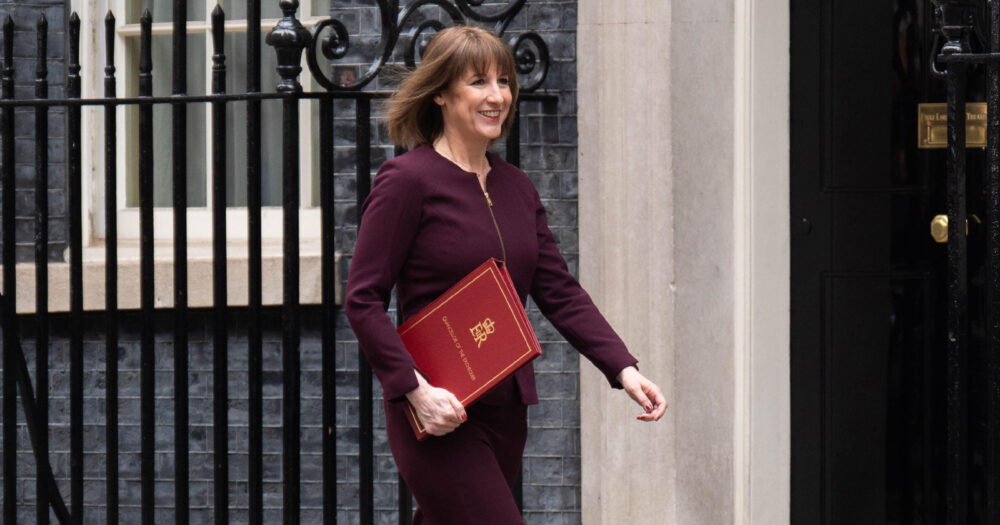Rachel Reeves will commit to abolishing youth unemployment by “guaranteeing” a job or training place for 18 to 21-year-olds on long-term benefits.
The chancellor will use her mainstage speech at the Labour Party conference this afternoon to unveil a “youth guarantee” to combat rising numbers of young people not in education, employment or training (NEET).
She will say the government is committed to “nothing less than the abolition of long-term youth unemployment”.
Young people who have been claiming benefits for more than 18 months will reportedly lose their benefits if they refuse a work or training place.
The Treasury said the youth guarantee will “build upon existing employment support and sector-based work academies currently being delivered by the Department for Work and Pensions”.
It will include a “targeted backstop, where every eligible unemployed young person on Universal Credit for 18 months without earning or learning will be provided guaranteed paid work”.
Participants will receive “support to take advantage of available opportunities, with the aim of helping them transition into regular employment”.
Full details, including eligibility criteria and the structure of placements, are expected in November’s budget, but the chancellor admitted to the BBC this morning no employers had signed up yet.
It follows a £45 million extension to the eight youth guarantee trailblazers to March 2027.
There was an increase in the number of young people aged 16 to 24 years NEET in April to June 2025, according to the Office for National Statistics. The total is currently estimated to be 948,000, almost 13 per cent of the 16 to 24 population.
Work and pensions secretary Pat McFadden, who now controls part of the skills brief, will lead the new scheme. He is expected to tell Labour’s conference this afternoon: “We will not stand by while a generation is consigned to benefits almost before they’ve begun.
“We will not accept that school pupils, full of promise, become adults, full of frustration. We cannot, we will not, allow wasted talent to become Britain’s story. The youth guarantee is how we will offer every young person a chance to get up and get on.”
Funding will come from existing budgets
It’s not yet clear how much cash the chancellor will splash on the scheme, but the Treasury confirmed it will be funded from within existing budgets.
The last government’s post-pandemic youth jobs scheme, Kickstart, cost around £2 billion, but was slammed by the National Audit Office for missing its recruitment target by nearly 100,000, and for costing nearly £7,000 per participant, becoming DWP’s most expensive employment scheme before it was axed.
It is also not yet known how employers will be incentivised to provide the jobs or how the extra college or training places will be funded under the youth guarantee.
Experts have questioned whether targeting young people on benefits will reach all young people that need support.
Laura-Jane Rawlings, chief executive of Youth Employment UK, told FE Week: “We must remember that many of the one million NEET young people Rachel Reeves talked about are not claiming universal credit and risk further disadvantage by being left out of key policy.
“We also need to ensure the employers get the right support to create quality opportunities for young people, and believe that there should be an adoption of the good youth employment standards.”
Stephen Evans, chief executive of Learning and Work Institute said only one in four NEETs are on benefits and required to search for work.
“This is a welcome announcement that can make a real difference, given our research shows more than half of NEETs say they’ve never had a paid job. It’s important this offer is open to all young people who need it, regardless of their benefit status.”















Your thoughts